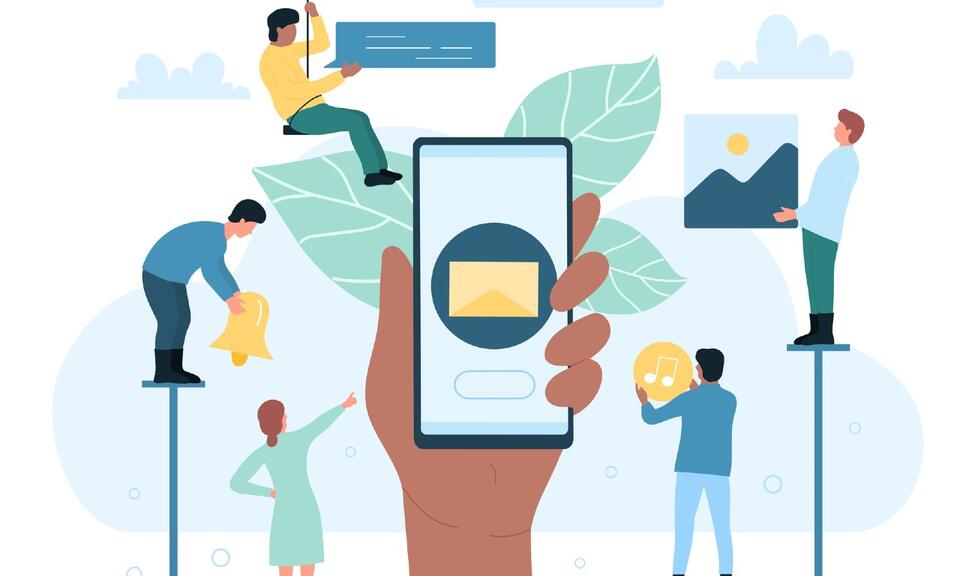Published
Category
Key topics
Professor of Practice David Shrier sits down with Vodafone Business UK's Chief Data Officer & Head of Portfolio Myriam Salah to discuss the company's digital transformation journey.
DS: To start, can you describe your role within Vodafone?
MS: My role at Vodafone focuses on digital data and transformation. My main responsibility is to ensure that our organisation becomes a data-driven entity. This involves not only having exceptional salespeople and account teams but also empowering them with accurate and timely data. A couple of years ago, we decided to create a state-of-the-art data team, appoint a Chief Data Officer, and drive our journey towards becoming a data-literate organisation. This transformation is about making data readily available, democratising its access, and training our people to use it effectively.
DS: Can you elaborate on how you're approaching digital transformation at Vodafone?
MS: Digital transformation at Vodafone is a multifaceted endeavour. First, we aim to offer our customers the option to do everything unassisted if they choose, with the ability to seamlessly transition to assisted support as needed. To achieve this, we need a robust data layer that connects all customer-facing interfaces with our internal systems. This ensures a cohesive and integrated experience.
Additionally, we are focused on consolidating the various systems we have acquired over the years through mergers and acquisitions. By integrating these systems, we can provide an omnichannel experience, run analytics on a centralised data cloud, and ultimately support our corporate strategy of putting customers first and simplifying our business processes.
DS: It sounds like a comprehensive strategy. Can you describe how your team is organized to support these initiatives?
MS: Our team is structured into several key areas. In the data space, we have teams focused on data movement and transformation, working with our technology colleagues to build data pipelines and move data into the cloud. Our data science and insights team is split into two areas: insights, which build statistical reports for day-to-day operations, and data science and machine learning engineering, which develop and deploy machine learning models.
On the digital transformation side, we have an e-commerce team, an omnichannel team, and a trade trading and digital advocacy team. Each of these teams focuses on different aspects of our digital strategy, from web applications and mobile apps to ensuring all our software platforms communicate effectively and drive digital advocacy internally.
DS: What are some of Vodafone's key objectives for 2024?
MS: For 2024, we have several key objectives. One major goal is to increase traffic to our online interfaces by 20 per cent, justifying further investments in our digital platforms. We also aim to consolidate our various portals into a unified system, enhancing user experience and efficiency. Additionally, we want to be recognised as a digital-first brand, which is crucial for our customer interactions and overall satisfaction.
DS: How is Vodafone leveraging AI in its digital transformation efforts?
MS: AI is a significant part of our strategy, though we approach it with caution due to regulatory and ethical considerations. We're developing AI use cases, particularly in the area of generative AI, to handle the vast amounts of text data across our business. For instance, we're working on a ChatGPT-like search functionality to help our employees quickly find information and resolve customer issues. This will enhance customer service and operational efficiency.
DS: Beyond AI, what other digital trends and technologies are you tracking closely?
MS: One trend we're closely monitoring is the concept of total experience, which aims to provide a seamless and consistent experience across all digital interactions for both customers and employees. We're also focused on the potential of 5G standalone deployment, which we believe will transform how we offer services and build modular product offerings.
DS: Looking ahead, what do you think will be the biggest disruptor for Vodafone's business in the next few years?
MS: We're keeping a close eye on AI and its transformative potential, particularly how it might automate many tasks currently handled through traditional digital transformation initiatives. Additionally, sustainability is becoming a crucial differentiator, and we're exploring how technology can support sustainable development goals. Access to connectivity through 5G and modular product builds will also play a significant role in shaping our future offerings.
DS: Finally, what advice would you give to other organisations embarking on their digital transformation journeys?
MS: My advice would be to clearly define what digital transformation means for your organisation and ensure it aligns with your long-term business goals. Conduct a thorough impact assessment to understand where you stand and create a detailed plan. It's essential to get buy-in from all stakeholders, as digital transformation often involves significant changes in processes and technology. Breaking the transformation into smaller, manageable chunks that deliver quick wins can help maintain momentum and engagement.
DS: Myriam, thank you for sharing these valuable insights. It's clear that Vodafone is making significant strides in digital transformation, and I look forward to seeing how your initiatives unfold in the coming years.
MS: Thank you, David. It's been a pleasure discussing our journey and the exciting future ahead.
Imperial Business School's Centre for Digital Transformation is collaborating with Vodafone on investigating the impacts of digital technologies on business, and strategies Vodafone can adapt to its context as it navigates this new landscape. This interview has been published with Vodafone's permission.


